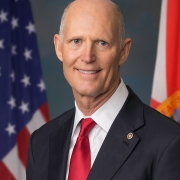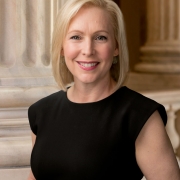United States Senate
Special Committee on Aging
Dave McCormick – PA
Jim Justice – WV
Tommy Tuberville – AL
Ron Johnson – WI
Ashley Moody – FL
Jon Husted, OH
Elizabeth Warren – MA
Mark Kelly – AZ
Raphael Warnock – GA
Andy Kim – NJ
Angela Alsobrooks – MD
Committee Background:
The Senate Special Committee on Aging was first established in 1961 as a temporary committee. It was granted permanent status on February 1, 1977. While special committees have no legislative authority, they can study issues, conduct oversight of programs, and investigate reports of fraud and waste.
Throughout its existence, the Special Committee on Aging has served as a focal point in the Senate for discussion and debate on matters relating to older Americans. Often, the Committee will submit its findings and recommendations for legislation to the Senate. In addition, the Committee publishes materials of assistance to those interested in public policies which relate to the elderly.
The Committee has a long and influential history. It has called the Congress’ and the nation’s attention to many problems affecting older Americans. The Committee was exploring health insurance coverage of older Americans prior to the enactment of Medicare in 1965.
Since the passage of that legislation, the Committee has continually reviewed Medicare’s performance on an almost annual basis. The Committee has also regularly reviewed pension coverage and employment opportunities for older Americans. It has conducted oversight of the administration of major programs like Social Security and the Older Americans Act. Finally, it has crusaded against frauds targeting the elderly and Federal programs on which the elderly depend.
Senator Frank Moss (D-Utah) brought to light unacceptable conditions in nursing homes. Senator Frank Church (D-Idaho) worked on adding more protections for seniors in the area of age discrimination. Senator John Heinz (R-Pennsylvania) reviewed Medicare’s Prospective Payment System to see whether it was true the system was forcing Medicare beneficiaries to be discharged “quicker and sicker.”
When the statute of limitations for age discrimination in employment claims had lapsed, Senator John Melcher (D-Montana) worked to restore the rights to America’s older individuals. Senator David Pryor (D-Arkansas) investigated the pricing practices for prescription drugs and his efforts helped change the pricing behavior of pharmaceutical companies. Senator Bill Cohen (R-Maine) led the way to enactment of strong health care anti-fraud legislation. Under Senator Chuck Grassley (R-Iowa) the committee investigated abuses in the nursing home and funeral home industries. Most recently, Sen. John Breaux (D-Louisiana) focused the committee’s work on long-term care.
Over the years, the Committee has been in the thick of the debate on issues of central concern to older Americans. As the baby boom generation begins to retire en masse, the work of the Special Committee on Aging has only just begun.
Senate Special Committee on Aging Hearings on Guardianship and Conservatorship Problems:
February 11, 2003: Guardianship Over the Elderly: Security Provided or Freedoms Denied?
July 24, 2004: Forum on Protecting Older Americans Under Guardianship: Who is Watching the Guardian?
September 7, 2006: Exploitation of Seniors: America’s Ailing Guardianship System
December, 2007: Guardianship for the Elderly: Protecting the Rights and Welfare of Seniors With Reduced Capacity
December, 2010: Guardianships: Cases of Financial Exploitation, Abuse and Neglect of Seniors
November 2016: ELDER ABUSE: The Extent of Abuse by Guardians Is Unknown; but Some Measures Exist to Help Protect Older Adults
April 18, 2018: Exploitation of Older Americans by Guardians and Other Persons They Trust
November 28, 2018: Ensuring Trust: Strengthening State Efforts to Overhaul the Guardianship Process and Protect Older Americans
March 30, 2023: Guardianship and Alternatives: Protection and Empowerment


